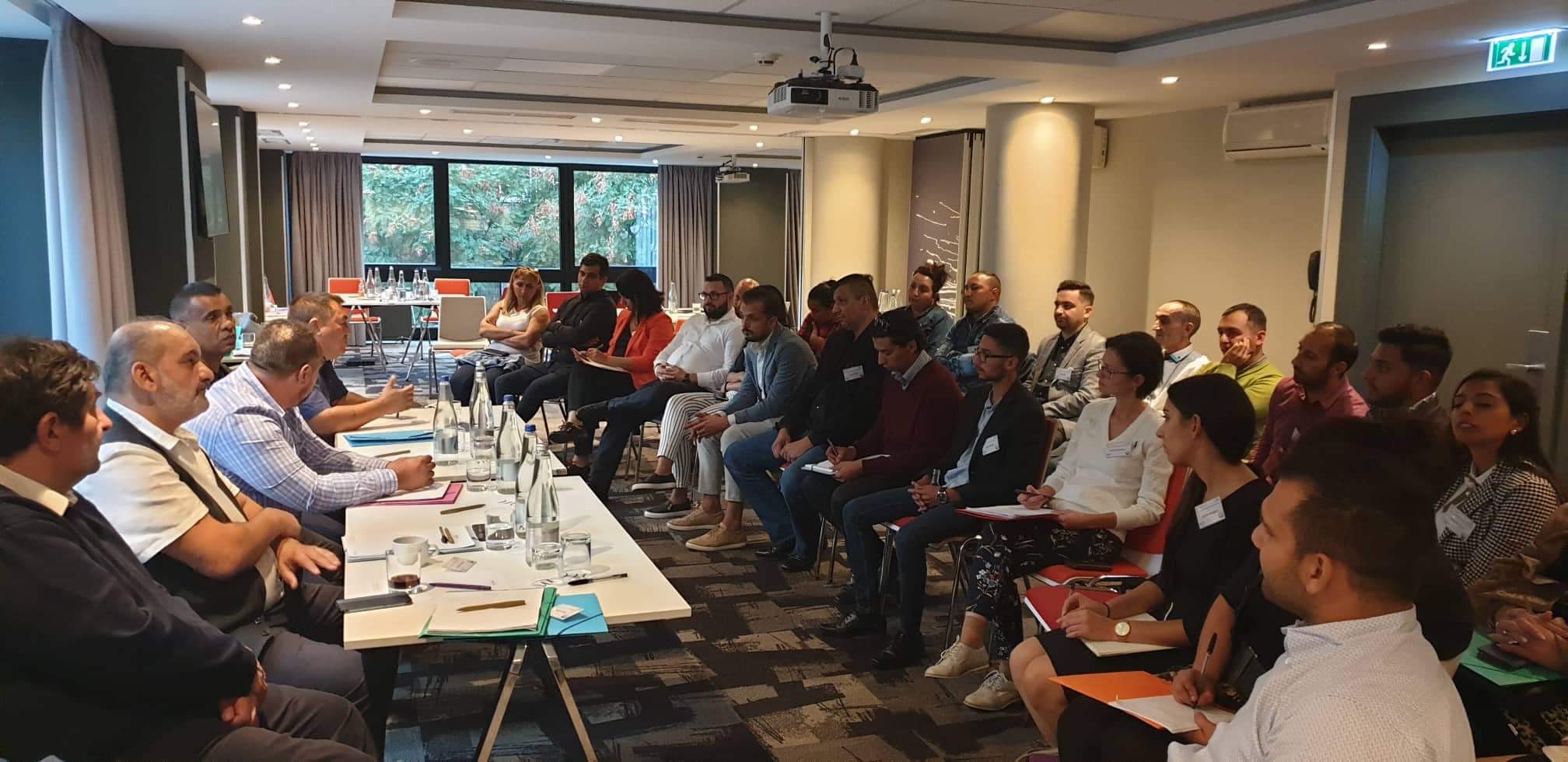On September 21-22, Phiren Amenca in partnership with the National Democratic Institute (NDI) organized a Roma Youth Congress for 50 Roma young people and selected activists who support Roma youth political engagement. The event was part of a wider program entitled “Roma Youth Voices” initiated by Phiren Amenca and the ternYpe international Roma youth network, financed by the European Union.
The Congress asked the following questions that have been preoccupying Roma youth over the past years as they have become politically active: Should Roma politics be organized along ethnic lines and in this context is there a role in politics for Roma Minority Self-Governments (MSGs) or Roma political parties? Should Roma youth be standing for elected office as part of these MSGs or should they stand as candidates in local council structures? Are Roma youth present in mainstream politics?
The invited guests came from all sides of the political spectrum and from different generations in politics. This allowed the Roma participants engage in dialogue with each other and with important Roma politicians who were invited guests about the cooperation or lack thereof between the different generations. Everyone agreed that there is a great need for joint spaces where Roma interested in politics can meet and have discussions with each other. These spaces were offered in the past through Roma civic summer camps but are now lacking. Instead, the internet is often the only modality for communication, and this can exacerbate disagreements and conflicts. It is necessary for Roma to work on developing a debate culture where they can argue their points without disputes becoming acrimonious. There is also a need for the older generations to mentor and support young talent without cynicism and discouragement for the lack of experience of the young.
Part of the first day was spent in thematic groups such as:
- The role of Roma ethnic (MSG) politics
- Roma youth in mainstream politics
- What allows Roma youth to become politically active
- Political responses to antigypsyism and multiple discrimination
Suggestions from the groups included:
- MSGs should take a purely cultural role – as the law suggests
- Local authorities should partner with independent civil society Roma-led groups rather than MSGs
- Local councilors should have time- limited mandates
- Roma youth could build links with mainstream media to make sure a more positive image of Roma is portrayed to the public – this could help the inclusion of Roma in mainstream parties
It is important for Roma civil societies and young would-be polticians to understand intersectionality and the experiences of multiple discrimination suffered by Roma women, LGBTQ+ people, or Roma without education so that those marginalized groups can also be represented by politics.
The results of the working groups are added to our recommendations to the post-2020 EU Roma Strategy and National Roma Integration Strategies, what we have already sent to the European Commission.
The evening of the first day was spent with the youth in dialogue with a panel of important Roma political figures such as: Kállai Ernő, ex ombudsman and academic researcher; Horváth Aladár, former advisor to the Prime Minister and a founding member of the Roma Civil Foundation, Kolompár Orbán, former President of the National Roma MSG and current President of the Hungarian Roma Forum (MCF); Dancs Mihály, President of the Hungarian Roma Party; and Hegedűs István who was also a former President of the National Roma MSG.
The current President of the National Roma MSG (Farkas Flórián) and Lívia Jaroka FIDESZ MEP were also invited. The former did not respond, and the latter was not able to attend due to other engagements. Hidvégi-Balogh Attila, journalist and editor of the RomNet portal moderated the discussions though questions such as should Roma politics be organized along ethnic lines or shall we only focus on mainstream politics, how they work together with young Roma and how do we see the new generation in Roma public life.
The second day was dedicated to another panel discussion with prominent mainstream politicians. These were Donáth Anna MEP (Momentum), Teleki László (MSZP), Kocsis-Cake Olívió (Párbeszéd) and Arató Gergely (DK). They were joined by Biro Barna, from the TizenX youth wing of the Momentum party, and an NDI CEDI program participant. The questions to the panel were prepared in advance by the audience and centered around the youth policies of each party.
Momentum gave the best answers about youth politics and it was evident from the presence of their young politicians that they invest in youth cadres. Another question was about whether Roma were welcome in mainstream politics. While the parties said positive things in response it was clear that they have not processes to involve ethnic minorities.
Teleki László was the only Roma member of the panel. He spoke about previous policies brought in by previous MSZP governments such as a mentoring program for young Roma politicians. However, he believes that now Roma are seen by politics in Hungary as a threat to national security and consequently are not handled with respect but with suspicion and through a punitive lens.
Donáth Anna also spoke about being a young woman in politics and the difficulties she experiences in that role. Bíró Barna spoke about how Momentum involves youth in all its activities from the age of 13 through TizenX and said he was more than willing to discuss and share his learning about their ways of working with Roma youth wishing to set up their own youth political movement.
At the end of the discussion, a concrete proposal was made that after the municipal elections, elected Roma mayors, municipal representatives, representatives of political parties and Roma youth leaders and activists will come together again to create a unique workplace and to start a joint professional work to support Roma youth issues. The proposal was welcomed and supported by everyone.


